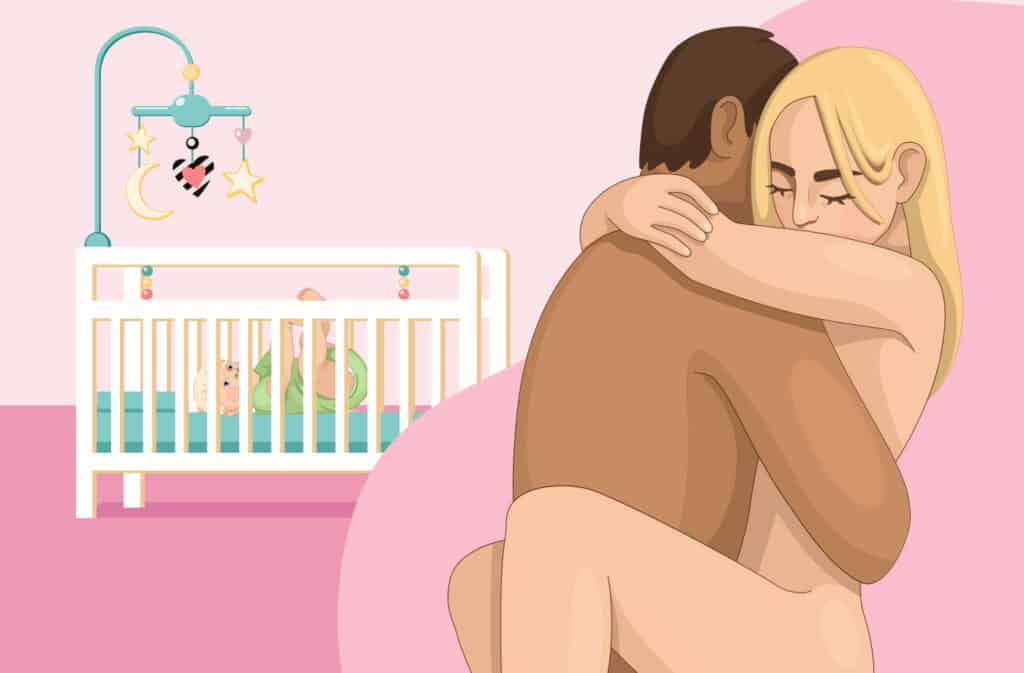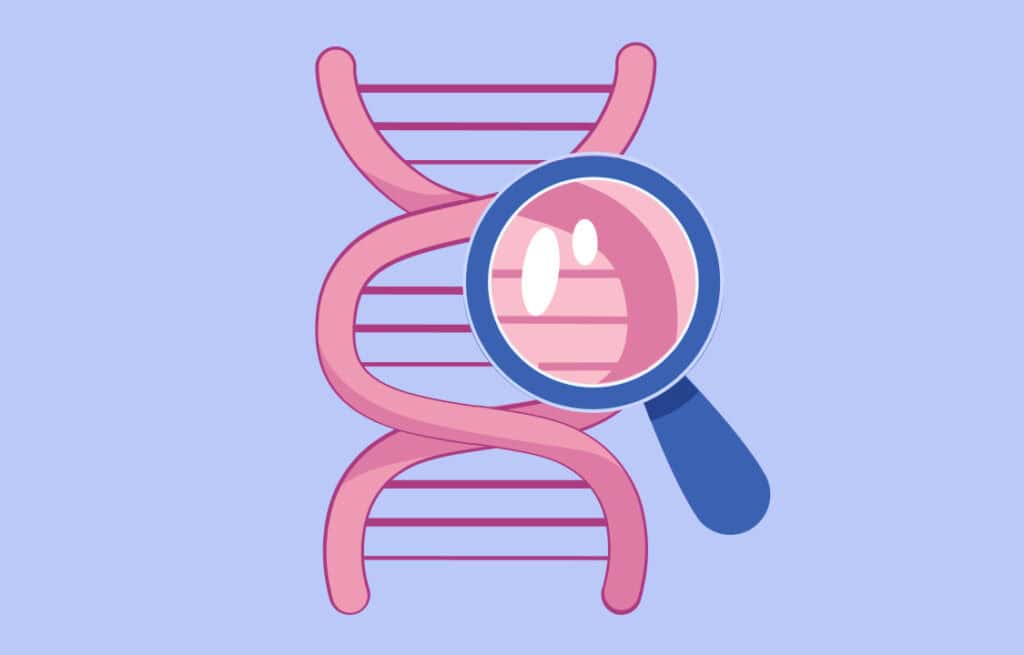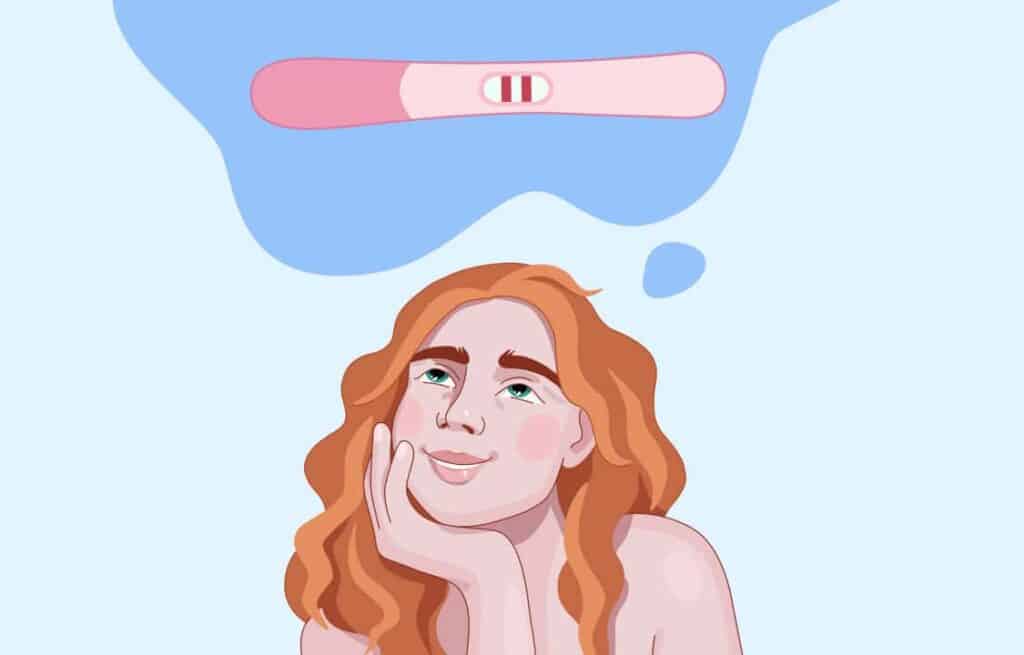Femia > Health Library > Being a mom > Recovering from birth > A complete guide to postpartum sex: What to expect and how to prepare
A complete guide to postpartum sex: What to expect and how to prepare

- Updated Feb 10, 2025
- Published
CRAFTED BY HUMAN
Crafted by human At Femia, we provide accurate and up-to-date information at every stage of your journey, from trying to conceive, pregnancy and postnatal support. All content is created by a real person based on in-depth research and own professional experience. Femia ensures that you will receive expert advice, strict accuracy and a personalized approach from our authors/medical experts. Learn more about our editorial policy.
FACT CHECKED
Fact checked At Femia Health, we maintain the highest standards of editorial excellence in delivering content focused on helping you conceive, guiding you through pregnancy, and supporting you postpartum. Explore our content review principles to learn how we ensure the accuracy and quality of our health and lifestyle tips for every stage of your journey.
- Healthcare providers typically recommend waiting at least 4-6 weeks to have sex after birth after vaginal delivery and 6-8 weeks after C-section.
- The main factors affecting the quality of postpartum sex include weakened pelvic floor muscles, scar tissue, vaginal tenderness or dryness, and emotional distress caused by body image, anxiety, and overall exhaustion.
- Often, resuming sexual activity is accompanied by discomfort and pain, however, a focus on rebuilding intimacy, self-care, communication, and a slow pace can help overcome challenges.
While conceiving and giving birth to a child is often something deeply anticipated and exciting, sex after birth is a common cause of concern for new parents. It comes along with a wealth of questions and concerns, such as when it might be safe to resume sexual activity, what it feels like after giving birth, and how one addresses physical changes like soreness, vaginal dryness or reduced libido.
If you’re having any of these concerns, the first thing you should know is that it’s absolutely normal to have questions about your sex life post-labor. In this guide, we’ll talk about the most popular concerns you might be facing and we’ll offer practical tips for overcoming them.
Femia offers practical tips on overcoming your concerns
and boosting your sexual sensations
When can you have sex after birth?
Probably the biggest and most pressing concern for new parents is–how long after having a baby can you have sex? It’s important to remember that there’s no set waiting time or universal rule when it comes to resuming sex after childbirth. While physical recovery is essential, emotional readiness is just as crucial. Childbirth is a significant stress on the body, and it may take time for a woman to regain emotional balance and feel ready for intimacy. Taking a careful and patient approach ensures both physical and emotional recovery before resuming sexual activity.
Although there are no specific rules, most healthcare providers recommend taking a “safety first” approach and waiting at least 4-6 weeks after childbirth. This is the average time necessary for general healing.
Yet, it’s important to understand that every person’s experience and healing is unique. Hence, it’s important to listen to your own body. It’s recommended to receive a personalized consultation on when to resume sexual activity from your healthcare provider.
👉Find out more: Breastfeeding and sex: Navigating changes
The difference between vaginal and C-section deliveries
When you’re wondering “When can you have sex after birth,” another important thing to keep in mind is your delivery experience and any birth-related issues that might be there.
Vaginal delivery is generally considered the safest delivery method, accounting for roughly 68% of all births in the United States. It implies delivering your baby naturally, through the vagina or birth canal.
A C-section birth is when a baby is delivered through surgical incisions made in your abdomen and uterus. It can be either planned in advance or a last-minute decision when there are problems with natural delivery.
Both of these delivery types might come with certain complications that might affect your postpartum sex:
- Vaginal delivery might leave you with hemorrhage, uterine rupture, and vaginal tear or episiotomy. These can result in vaginal swelling, soreness, and pelvic floor changes that might require you to adjust your plans concerning postpartum sex.
- Cesarean incision typically leaves your vaginal area less affected. However, it can result in weaker abdominal muscles, discomfort during movement, and stomach pain after sex due to excessive pressure.
When can you have sex after a C-section?
For C-section deliveries, healthcare providers typically recommend waiting 6-8 weeks before resuming sex. While your vaginal area might remain unaffected, it’s essential to remember that a C-section is a major surgery, and recovery involves special considerations. These include abdominal tenderness, scar healing, and potential complications. It’s also important to consider your overall well-being and emotional readiness, as recovery can vary from woman to woman. Always consult with your healthcare provider to ensure you’re physically and emotionally prepared before resuming sexual activity.
Generally, it’s important for women after c-sections to avoid strain on the incision site. Thus, having sex too early can create unwanted pressure, make you feel sick and discomforted, and complicate recovery. In fact, any unnecessary physical activity can result in the same issues after a c-section.
What can you do sexually after giving birth?
While you will have to wait to resume sex after giving birth, there are alternative ways to maintain intimacy with your partner:
- Cuddling
- Kissing
- Gentle massage
- Oral sex
- Other sexual exploration tactics that don’t involve penetration, such as mutual masturbation
These alternatives can help you get closer to your partner. They are generally harmless as long as you don’t put too much strain on yourself.
However, in the case of any sexual activity, including oral sex, it’s pivotal to maintain proper hygiene to ensure there is no infection. As your uterus heals, it becomes more vulnerable to infection so even using feminine products such as tampons requires carefulness to steer clear of bacteria.
“Okay, but after giving birth when can I receive oral?” – The rules are pretty much the same. It’s also important to wait a few days until your bleeding stops (if any) and you can engage in different forms of “outercourse” if you adhere to hygiene rules. Also, be sure to listen to your doctor’s recommendations.
What does sex feel like for a woman after birth?
Depending on the delivery type and your unique experience, you might be dealing with certain physical changes that can affect your sensation, such as:
- Vaginal tenderness or dryness caused by sudden hormonal fluctuations.
- Fresh scar tissue left from tears, episiotomies, or C-sections.
- Weakened or tight pelvic floor.
It’s important to remember that every woman’s experience is unique so patience is the key to restoring sexual activity.
Does sex feel different after giving birth?
In short, it might feel different. Sex after pregnancy is affected by a range of factors, including hormonal fluctuations. These shifts can make your vagina feel dry and sore, causing discomfort and even pain during sex. This can be especially true for women who are breastfeeding.
The good news is that many of these challenges are temporary. Hormonal fluctuations that can cause a lack of libido and lubrication should typically be restored within three to six months. Vaginal tightness and sensation can take over six months to get back to normal but you can speed up the healing process and restore tone by doing regular pelvic floor exercises, such as reverse Kegels.
Emotional readiness: Rebuilding intimacy after childbirth
Apart from the physical challenges and concerns, the emotional side of postpartum sex can also complicate things. The most common hurdles include body image concerns and anxiety about a lack of libido, overall exhaustion, and possible pain during sex after birth or cramps and other discomfort afterward.
While these emotional burdens can make it harder to reconnect with your partner, there are a few simple tips for easing the pressure and rebuilding emotional intimacy:
- Prioritize openness. Communicate freely about your needs, concerns, and challenges.
- Adjust expectations. Discuss the possible differences you might have in your sex life to prepare for them.
- Focus on each other. Try allocating enough quality time for just the two of you.
- Make plans. When ready, start scheduling time for sexual and emotional connection that would let you re-explore each other with no pressure.
- Seek support. Lastly, if you feel overwhelmed, don’t be afraid to consider counseling.
Contraception and postpartum sex
Contraception is another big concern related to sex after pregnancy. Many couples out there are asking –Is it safe to have unprotected sex 3 weeks after giving birth? 4 weeks? Or maybe more?
The thing with this is that it’s hard to tell when the ovulation after giving birth will return. The timing is individual for every female. It can resume before you get your first postpartum period or after that.
Why is contraception important postpartum?
- You can’t guarantee that you won’t conceive if your ovulation has already returned. You might be very fertile.
- Your uterus is especially vulnerable to infections during the first weeks postpartum.
Due to these reasons, it’s generally not recommended to have unprotected sex 3 weeks after giving birth. Instead, you should use available and safe methods of contraception, such as:
- Barrier methods like condoms
- Hormonal birth control (it’s important to pick safe options for breastfeeding mothers)
- IUDs or implants
Pain during sex after birth: Causes and solutions
Most commonly, females can experience pain during sex after birth due to three main causes:
- Perineal sensitivity can occur due to hormonal changes as well as due to vaginal tears or episiotomy. If there were any stitches it’s common to experience scar sensitivity.
- Vaginal dryness is often caused by a sudden drop in estrogen and progesterone levels after labor. Without additional lubrication, it can result in pain or burning after sex.
- Overall fatigue and postpartum anxiety can affect your libido, which can also affect lubrication and make intercourse discomforting.
How to reduce pain during sex
To reduce discomfort, first of all, you need to be patient and listen to your healthcare provider’s recommendations on when you can resume sexual activity. Additionally, consider using water-based lubricants to address dryness and avoid pain caused by friction. Also, try different positions to avoid pressure on sensitive areas. Some of the easiest positions to start with include spooning, side-lying, cowgirl, and rear-entry.
If pain persists and other remedies don’t help much, you can consider pelvic floor therapy. It helps relax muscles that are too tight and release trigger points, while also helping strengthen the pelvic floor.
👉Find out more: Signs of ovulation after giving birth: What new moms need to know
Tips for a positive postpartum sex experience
Sex after birth is a natural part of healing and restoring intimacy with your partner, though it may feel a bit distressing at first. Here are a few practical tips that can help you make it a positive experience:
- Wait for medical clearance.
- Take things slow and move at a pace that feels right to your body.
- Increase foreplay to boost your arousal.
- Use lubrication to avoid discomfort.
- Try relaxation techniques, such as taking a warm bath, meditating, or breathing to ensure emotional readiness.
- Communicate openly about your fears and sensations.
- Don’t continue intercourse if you feel pain or discomfort and try to address them.
- Experiment with sexual activities other than vaginal intercourse, such as oral sex, erotic massage, mutual masturbation, etc.
- Set realistic expectations and focus on exploration and mutual pleasure to reach orgasm.
Femia offers practical tips on overcoming your concerns
and boosting your sexual sensations
When to seek help for postpartum sexual issues
Generally, experiencing pain during sex after birth is very common. Almost all females find their very first intercourse after labor painful and around 60% of them experience pain and discomfort for up to seven weeks postpartum. Discomforting sensations during the healing period are typically not a cause for concern.
However, you should consider getting personalized advice from a doctor if you experience persistent pain or discomfort. Also, it might be helpful to seek support if you find you have significant challenges with arousal or satisfaction or if you experience emotional distress, including postpartum depression or anxiety.
Questions from the Femia community
How can I boost my libido postpartum?
Libido can naturally decrease due to hormonal fluctuations. A focus on self-care and sexual exploration can help. Also, it’s important to maintain open communication with your partner and consider counseling if needed.
Can breastfeeding affect postpartum sex?
Yes, breastfeeding affects your level of estrogen, lowering it. This can lead to a lack of libido and lubrication.
Is it normal to feel nervous about having sex after birth?
Yes, postpartum sex frequently causes concerns and anxiety in new parents. It’s recommended to communicate openly, take things slow, and focus on intimacy to reduce nervousness.
How can pelvic floor exercises improve postpartum sex?
Studies show that pelvic floor issues are very common in women who have recently given birth. The pelvic floor refers to the muscles and tissues that support the bladder, uterus, small intestine, and rectum. Problems with the pelvic floor can affect intimacy and sexual pleasure.. However, pelvic floor exercises help strengthen muscles, restore tone, and release trigger points. In the long run, these exercises can help reduce pain and incontinence problems and enhance sensation.
The bottom line
Sex after birth is a gradual process that shouldn’t be forced. Both the physical and emotional changes that happen to women during pregnancy and labor can affect the libido, sensations, and emotional readiness for intercourse.
In order to reduce discomfort and make it a positive experience, it’s important to consult with a doctor and set your own timeline for resuming sexual activity.
A focus on your feelings, self-care, and communication with your partner should help. So be patient and open to exploration to rediscover intimacy at a comfortable pace and enjoy your sex life again.
References
- Lori Smith, Holly Ernst. “When can I have sex after being pregnant?” Medical News Today. https://www.medicalnewstoday.com/articles/319424.
- “Pregnancy: Types of Delivery.” Cleveland Clinic, 7, Oct. 2022. https://my.clevelandclinic.org/health/articles/9675-pregnancy-types-of-delivery.
- “When can you have sex after a C-section?” Urology Hospital, 6, Jun. 2018. https://urology.co.za/when-can-you-have-sex-after-a-c-section/.
- “Sex After Childbirth: How Long to Wait and What to Expect.” Penn Medicine, Lancaster General Health. https://www.lancastergeneralhealth.org/health-hub-home/motherhood/fourth-trimester/sex-after-childbirth-how-long-to-wait-and-what-to-expect.
- Lizabeth A. Kopp, Judi R. Gerardis. “What Happens to Your Hormones After Birth?” Hackensack Meridian Health, 2, Mar. 2023. https://www.hackensackmeridianhealth.org/en/healthu/2023/03/02/what-happens-to-your-hormones-after-birth#:~:text=The%20return%20to%20pre%2Dpregnancy,feeling%20sad%2C%20anxious%20or%20irritable.
- Lindsay Davey. “VAGINAL LAXITY AND CHILDBIRTH: IS A “LOOSE VAGINA” COMMON? TREATABLE?” Toronto Physiotherapy, 7, Jun. 2019. https://torontophysiotherapy.ca/vaginal-laxity-and-childbirth-is-a-loose-vagina-common/#:~:text=It%20could%20take%20more%20than,of%20your%20pelvic%20floor%20muscles.
- “Sex and contraception after birth.” The National Health Service (NHS), 7, Feb. 2024. https://www.nhs.uk/conditions/baby/support-and-services/sex-and-contraception-after-birth/#:~:text=You%20can%20get%20pregnant%203,want%20to%20get%20pregnant%20again.
- “Is it Normal to Experience Painful Intercourse After Childbirth?” PelviCare. https://pelvicare.uk/blog/is-it-normal-to-experience-painful-intercourse-after-childbirth-2#:~:text=In%20fact%2C%20most%20women%20feel,of%20women%20report%20painful%20intercourse.
- “Sex after pregnancy: Set your own timeline.” Mayo Clinic, 26, Mar. 2024. https://www.mayoclinic.org/healthy-lifestyle/labor-and-delivery/in-depth/sex-after-pregnancy/art-20045669.

Genetic carrier screening reveals whether you have a gene for a certain genetic disorder. Take action and assess the risk of passing on genetic disease even before conception.

Did you know there are some positive signs after embryo transfer that can indicate successful implantation before your pregnancy confirmation test? Let’s dive deep.

TTC meaning, and what does BFP mean in pregnancy? Learn all about the DPO acronym, BFN meaning, and many other useful fertility acronyms you will likely come across.

